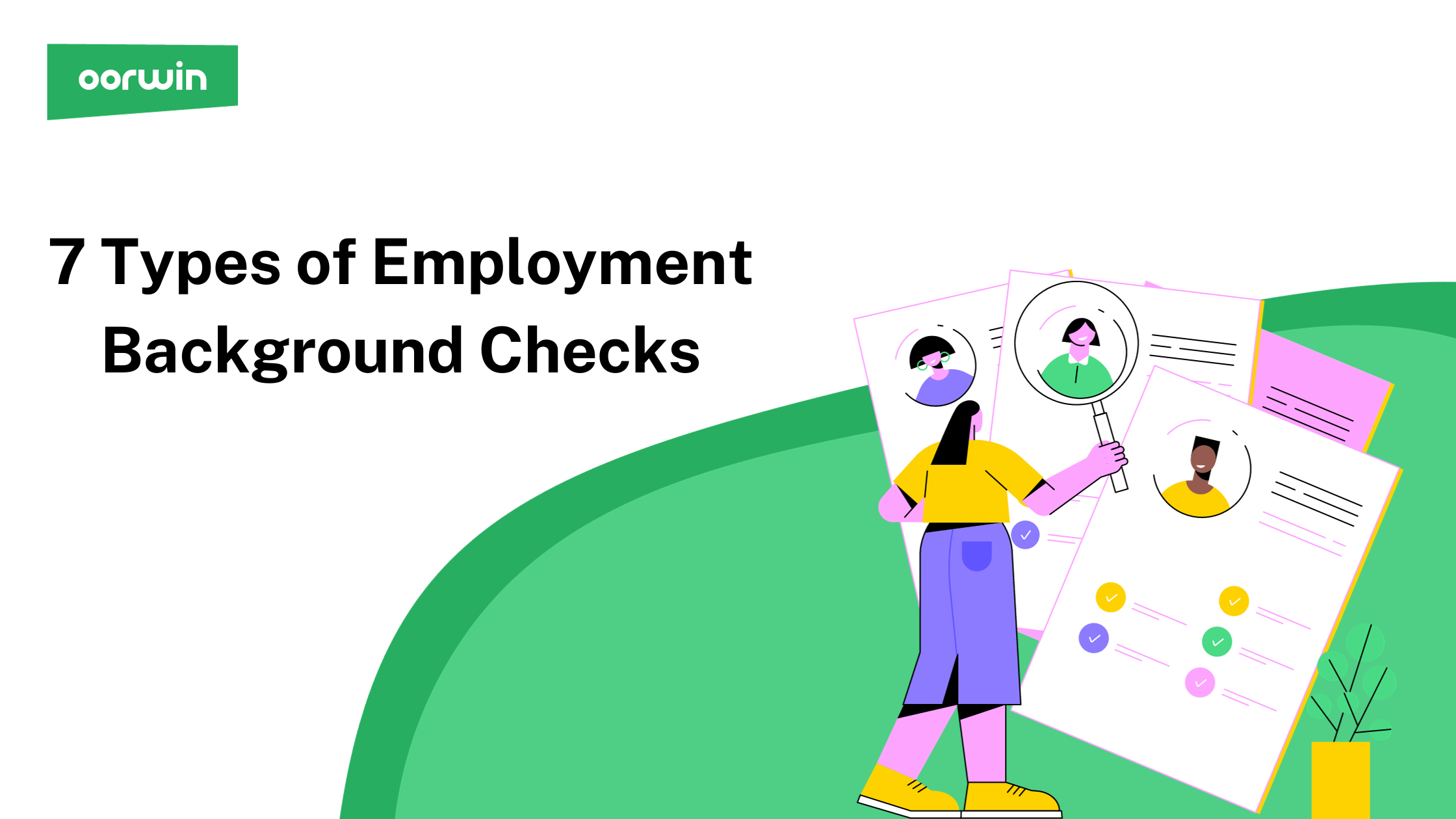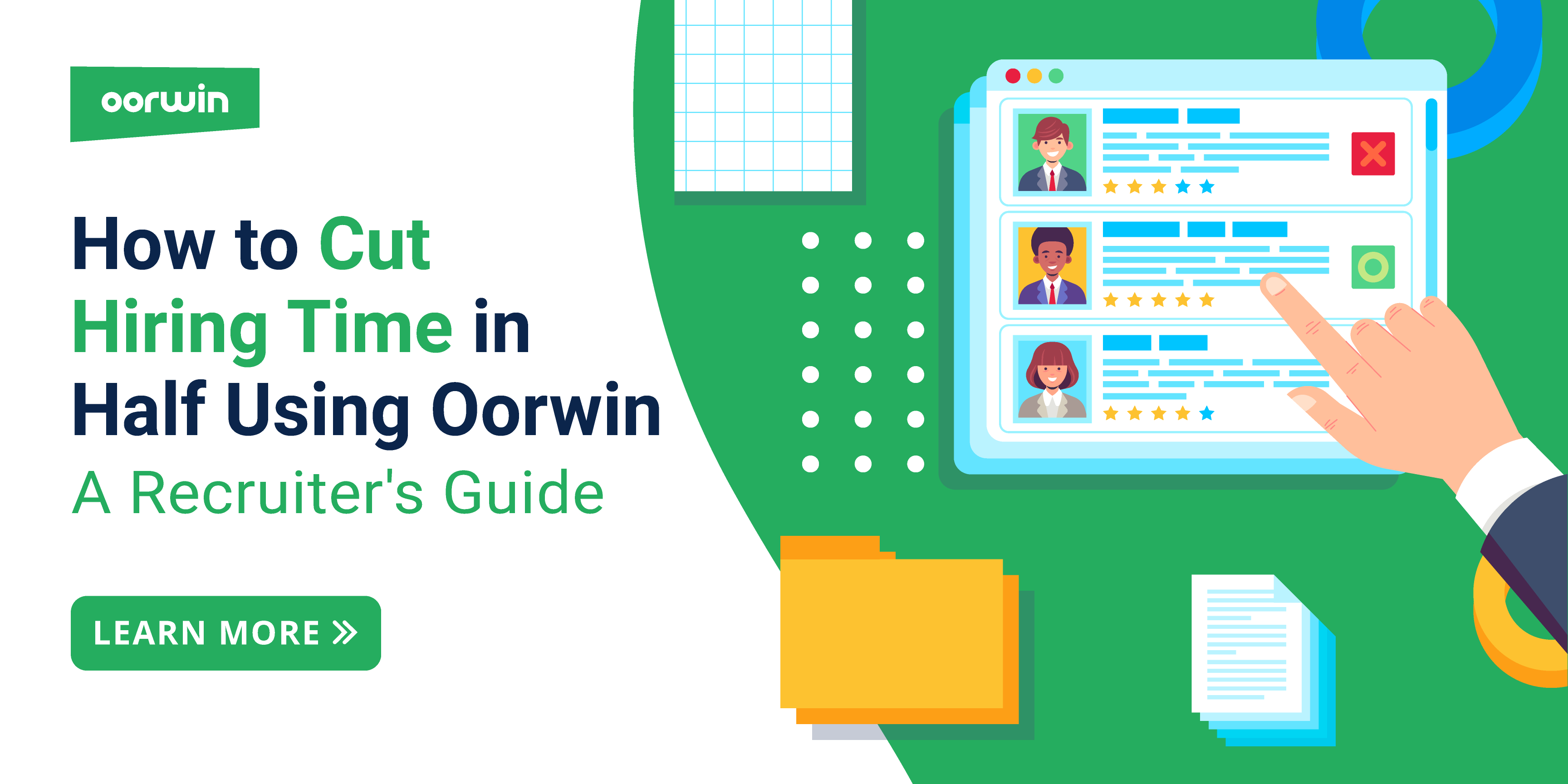Exploring 7 Types of Employment Background Check
Oorwin
7min read / 5 Oct 2023

Related Articles
7 Types of Background Checks of Candidates in the Recruitment Process
Ensuring you make the right choice is crucial when hiring new employees. One way to mitigate risks and improve the quality of your hires is through background checks. In this article, we’ll explore the importance of background checks and delve into seven types of background checks that can significantly impact your recruitment process.
Understanding the Importance of Background Checks
Background checks are a vital component of the hiring process. They play a pivotal role in mitigating risks, confirming qualifications, and safeguarding the workplace. Failing to conduct background checks can expose organizations to significant liabilities, including hiring unqualified or dishonest candidates who may harm the company’s reputation or pose security threats. These checks are a cornerstone of building a secure and reliable workforce by providing invaluable insights into a candidate’s past behavior and qualifications. Employers who prioritize background checks make more informed decisions, ultimately creating a safer and more dependable work environment for all.
Exploring 7 Types of Background Check of Candidates
In the realm of recruitment, knowledge is power. Delving into the seven critical types of background checks can significantly enhance the hiring process, ensuring the right fit for your organization.
1. Criminal Background Check
A criminal background check uncovers past criminal convictions. It’s a critical screening process for positions that require a high degree of trust and responsibility. This check ensures the safety and integrity of the workplace.
2. Previous Employment Check
The previous employment check verifies a candidate’s work history. It confirms that the candidate possesses the experience and qualifications they claim, helping employers make informed hiring decisions.
3. Reference Check
Reference checks encompass screening a candidate’s history at their prior workplace, including reaching out to former employers, supervisors, or colleagues. This process evaluates the candidate’s work ethic, character, and skill set, offering invaluable insights into their suitability as an employee.
4. Identity Check
An identity check is a foundational step in the hiring process. Its primary objective is to confirm a candidate’s identity, ensuring they are who they claim to be. By scrutinizing official documents such as driver’s licenses, passports, or social security numbers, employers can mitigate identity fraud and uphold the integrity of their workforce.
5. Education Qualification Check
The education qualification check verifies a candidate’s academic background, including degrees, certificates, and achievements. It confirms whether a candidate has the educational qualifications necessary for the job.
6. Credit Score
A credit score check is crucial for financial responsibility positions, such as accounting or financial management. It assesses a candidate’s financial history, helping employers evaluate their trustworthiness in financial matters.
7. Medical Check
A medical check ensures candidates meet the necessary health standards for roles with specific health requirements. This check helps maintain a safe and healthy work environment by ensuring employees are physically fit.
Process of Background Verification Checks
Conducting different types of background checks involves a systematic process. It’s essential to follow legal and ethical considerations when performing these checks. The steps typically include:
- Obtaining Candidate Consent: Before initiating any checks, secure the candidate’s explicit permission to access their information.
- Selecting the Appropriate Checks: Tailor the checks to the specific role, ensuring they are relevant to the responsibilities and requirements.
- Verifying Information Through Reliable Sources: Utilize credible sources for data validation, such as official records and references.
- Assessing the Results and Making Informed Decisions: Evaluate the findings meticulously to inform your hiring decision, considering all relevant factors.
- Maintaining Candidate Privacy and Adhering to Applicable Laws: Safeguard candidate privacy rights and strictly follow local and federal laws regulating background checks. This comprehensive approach guarantees a fair and lawful verification process.
Enhancing Workforce Safety Through Background Checks
Employers who conduct thorough background checks not only protect themselves but also enhance the safety of their workforce. Organizations can create a more secure and harmonious work environment by screening candidates for qualifications, character, and suitability.
Background checks are a critical part of the recruitment process. By utilizing various checks, employers can make informed decisions while selection, reduce risks, and ultimately build a more reliable and trustworthy workforce. Moreover, following a proper verification process and adhering to legal and ethical standards is essential to ensure fairness and respect for candidates throughout the hiring process.
Unlock a Safer, More Efficient Hiring Process with the integration of Oorwin and Checkr! Discover how our seamless integration can streamline background checks, ensuring a secure and productive workforce. Get started today!
Frequently Asked Questions
What Background Check Companies Do Employers Use?
Employers use background check companies to verify an applicant’s history, including criminal records, employment, education, and references.
What Is the Most Common Background Check for Employment?
The most common employment background check includes criminal history, employment verification, education verification, and reference checks.
What Does Job Background Check Consist Of?
Job background checks typically include criminal records, employment and education verification, and reference checks and may involve drug testing or credit history, depending on the role.
Popular Articles..
Blog

8min read / 25-Jun-2025
Master Effective Interview Techniques with Oorwin: A Step-by-Step Recruiter’s Guide
Blog
Blog
Get the latest Oorwin releases, updates, success stories & industry news
 Back
Back
